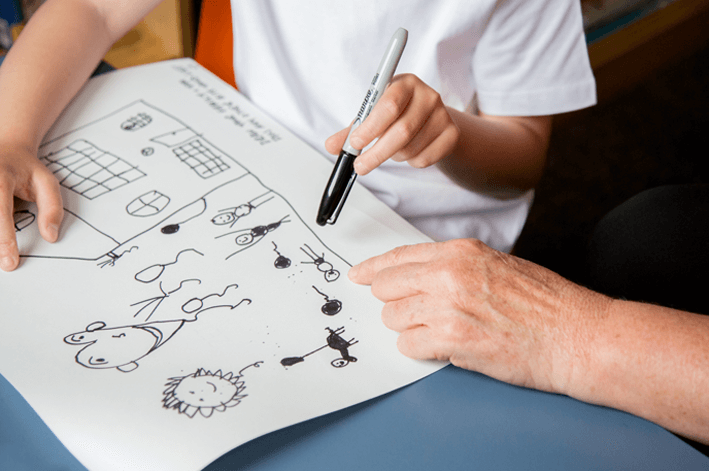When Your Student's Cancer Cannot Be Cured
When Your Student's Cancer Cannot Be Cured
Often simple measures can help your student who has cancer get the most from their remaining life.
Key points to remember when your student's cancer cannot be cured
- despite improvements in survival rates for children and teenagers with cancer, some young people will not be cured by their treatment
- often simple measures can help your student get the most from their remaining life

What kind of adjustments should I make to help my student who has cancer that cannot be cured?
Often simple measures can help your student whose cancer cannot be cured to get the most from their remaining life.
If your student becomes too tired to attend school for a full day, they may benefit from doing half days or even just going to class for an hour or two. As your student's energy fades, you will need to adjust their workload accordingly.
If your student has lost a lot of weight, they may be uncomfortable sitting in a school desk chair. To help, you can encourage them to bring a pillow or cushions to sit on. You can also provide an area in your classroom for them to take naps, such as on a bean bag.
There is some useful information on this website about palliative care and death and grief. But keep in mind, the information on these websites is written about all children and young people not just those with cancer.
Organisations such as Skylight, Kenzie's Gift and the Grief Centre have useful resources on dealing with trauma and grief.
Your student's palliative care team may also be able to help with support.
If my student with cancer dies, how will my class react to the loss?
If a student dies, classmates may express their grief in a variety of ways. Some are quite open, while others may appear almost indifferent to the loss of their classmate.
These responses are normal for young people reacting to grief. They may take in the information about a death gradually, as they become able to deal with the event and its consequences.
Read more about how young people react to loss
How should I acknowledge my students' feelings about loss?
It's important to acknowledge your students' feelings of loss for their classmate who has died. It is important not to force classmates to talk about the death or to deal with the grief before they are ready.
Most young people will deal with grief in their own way and at their own pace. It is important to give them space and as much time as they need to come to terms with their classmate's death.
Should I encourage my students to attend the funeral?
Attending their classmate's memorial service or funeral can help your students to process their death. Even for very young children, especially if they have not seen their sick friend for some time, the service may help give them closure.
It is also an opportunity for friends to say a last goodbye and to express their sorrow. However, not every friend or classmate should be expected to attend the service. It is up to each student and their family to decide whether or not they want to go. Do not force anyone to attend the funeral if they are reluctant.
It is important to encourage children to attend the funeral with a parent or someone who can support them with their emotional needs. If a service is held at a school, it is good to invite families and the wider community to be part of the service. Schools should offer support to teachers to help acknowledge their loss as well.
How should I handle questions about death from my class?
Your students are likely to have many questions after their classmate's death. Again, most are best able to cope with this event if you give them honest, simple, straightforward answers to their questions. Palliative care nurses may also be able to help answer these questions.
Is it appropriate to create a memorial for my student who has died?
With the family's permission, you could encourage your students to create a memorial for their friend.
They may want to plant a tree in the school grounds or fundraise for a piece of equipment for the school in their name. Organising a project like this and raising funds for it can be a valuable and healing experience. In most cases, family members will be comforted by the way their child's classmates share their feelings of loss.
This page last reviewed 12 May 2022.
Do you have any feedback for KidsHealth?
If you have any feedback about the KidsHealth website, or have a suggestion for new content, please get in touch with us.
Email us now